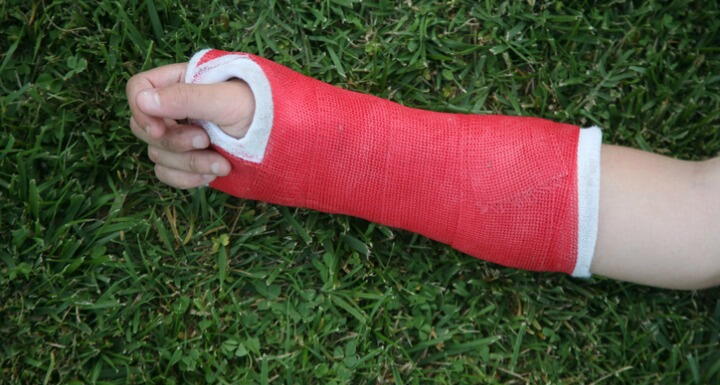Daycare and Other Child Care Injuries in North Carolina

Placing a child in daycare can be one of the most difficult things a working parent must do.
On the other hand, utilizing child care services is extremely beneficial to children’s educational and social development. We all want to trust that our children are safe and receive the proper treatment from the caregivers we choose.
Generally, child care facilities are responsible and caring, and they are a necessary part of our society. In November 2019 alone, more than 213,000 infant to 12-year-old kids were enrolled in home and child care centers in North Carolina; 161,010 or 75% were infants.
However, like anywhere else in the world, bad things can happen in a child care setting. For example, in 2019, child maltreatment caused 1,840 child fatalities in the United States, 16.6% of which were due to nonparents like child care providers. Although North Carolina has clear laws regulating child care facilities, such as appropriate sleep conditions, feeding schedules and practices, ratio requirements, and sanitation measures, a facility may fail to implement these requirements fully, fail to enforce them, or have employees that may fail to follow them.
Moreover, factors outside of a child care facility may negatively impact its employees’ performance. For example, especially in light of COVID-19, some child care facilities are understaffed, resulting in overworked employees. Working with infants and young children can be particularly stressful, and feeling exhausted, undervalued, or underpaid does not help the situation for these employees.
Liability and Damages
North Carolina law in the context of child care injuries can be complicated. Multiple sources of law govern the duties of child care facilities and their employees. The North Carolina legislature has enacted laws governing childcare facilities. The North Carolina Department of Human Services, Division of Child Development and Early Education (“DHHS”) has imposed safety standards, including requirements that facilities possess the proper licensing, conduct adequate background checks of employees, and satisfy sanitation requirements. There also are daycare industry standards, and a facility may have self-imposed additional requirements through its own materials, including any agreement/contracts with parents.
DHHS will investigate any injury at a daycare or other child care facilities. Further, prior DHHS inspections and investigations may be accessible to help determine if there were prior, ongoing issues at the facility. Law enforcement may be involved, and other parents of children who used the daycare may also have important information. It is extremely important to investigate these sources in order to identify any evidence pertinent to a potential personal injury claim.
If a child is injured at daycare, more than one person may be liable for the child’s injuries. For example, a child’s injuries may be due to the facility’s failure to maintain safe conditions, train and equip employees properly, or follow applicable laws. If this is the case, it is important to research the ownership structure for the facility, including determining if a separate entity had management oversight or other responsibilities. An employee’s own intentional or negligent conduct could have also caused the child’s injuries. Also, a child care facility may or may not have adequate insurance, which can affect a child’s overall recovery.
When a minor is injured, the applicable North Carolina law is complex. A minor may have their own claims for their injuries, including pain and suffering, scarring and disfigurement, loss of use of part of their body, diminished earning capacity as an adult, or the permanency associated with any continuing injuries. The minor’s parents may also be a party to allow recovery of any medical expenses incurred or to be incurred before the minor turns 18 years old.
To ensure fair legal representation if a lawsuit is filed, the Court will appoint a “guardian ad litem” to prosecute the case on the minor’s behalf. North Carolina requires a minor’s settlement to be court-reviewed and court-approved to ensure the minor received adequate representation and the settlement is in the minor’s best interest. A minor’s recovery will be held by the Court until the minor turns 18. However, an experienced attorney can help create a “structured settlement” annuity or a trust (including a “special needs trust,” where necessary) to ensure the child’s recovery is protected and maximized.
Issues may also arise with government benefits. If a child receives government health insurance (such as Medicaid) or other government benefits, settlement proceeds may affect their ability to continue to qualify for such benefits. Therefore, careful planning is crucial. An experienced attorney can help structure a child’s settlement proceeds to ensure the child’s recovery does not negatively impact other areas of their life.
The statute of limitations (the time limit to bring a lawsuit) may be different with a minor’s daycare claim—including potentially giving them time until after they turn 18 to file a lawsuit. However, this is not the case with all types of damages, which can be limited to a shorter statute of limitations (including three years). And, there can be other legal considerations that need to be carefully analyzed regarding legal time limits for minors’ claims. Thus, as with all personal injury cases, the best course of action is to contact a skilled attorney as soon as possible if an injury occurs. This is also necessary to ensure a thorough investigation is conducted as soon as possible and necessary information is not lost or forgotten.
Conclusion
Navigating a child’s daycare-related injury can be difficult and emotionally taxing. Sadly, these injuries can be devastating. Hiring an experienced attorney can help an affected family get through this difficult time and protect the child’s rights in the context of a complicated area of the law.
—
© 2022 Ward and Smith, P.A. For further information regarding the issues described above, please contact Taylor Rodney Marks or Jeremy M. Wilson.
This article is not intended to give, and should not be relied upon for, legal advice in any particular circumstance or fact situation. No action should be taken in reliance upon the information contained in this article without obtaining the advice of an attorney.
We are your established legal network with offices in Asheville, Greenville, New Bern, Raleigh, and Wilmington, NC.
Featured News
View All
